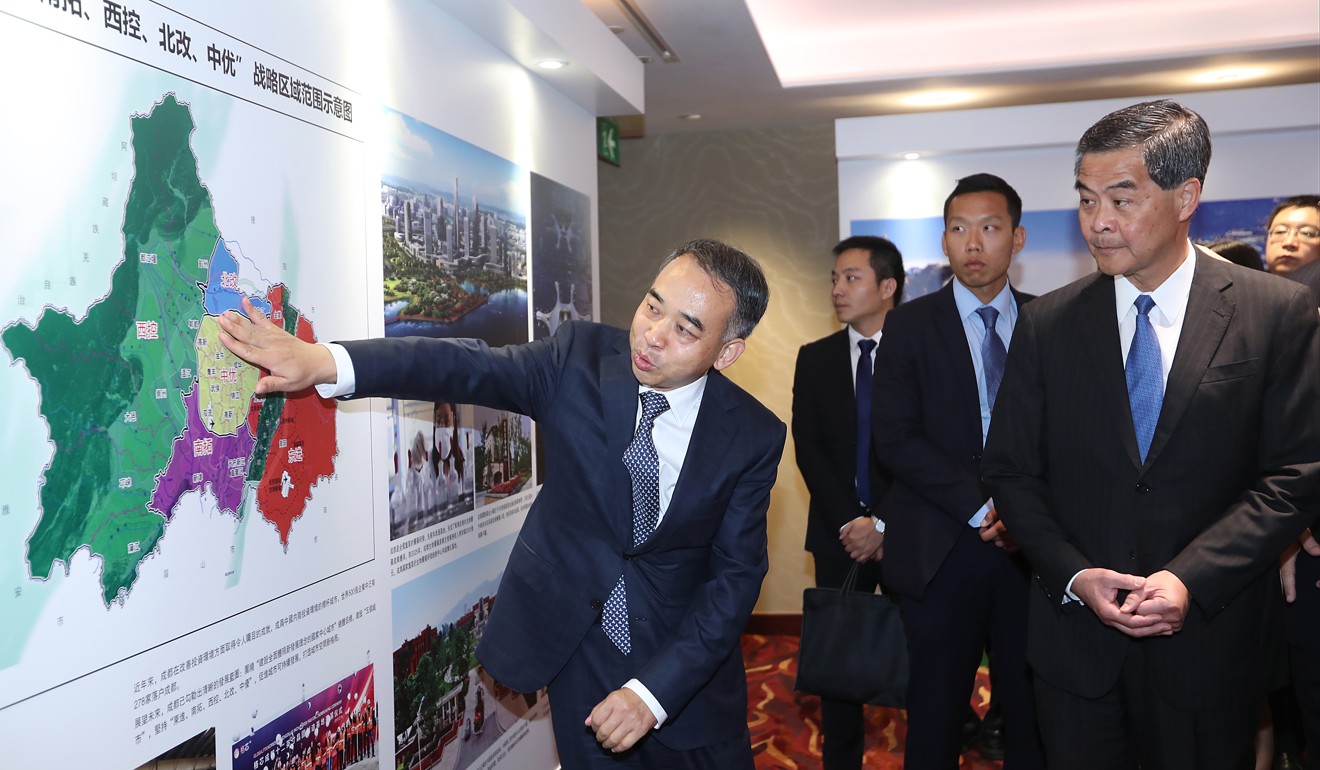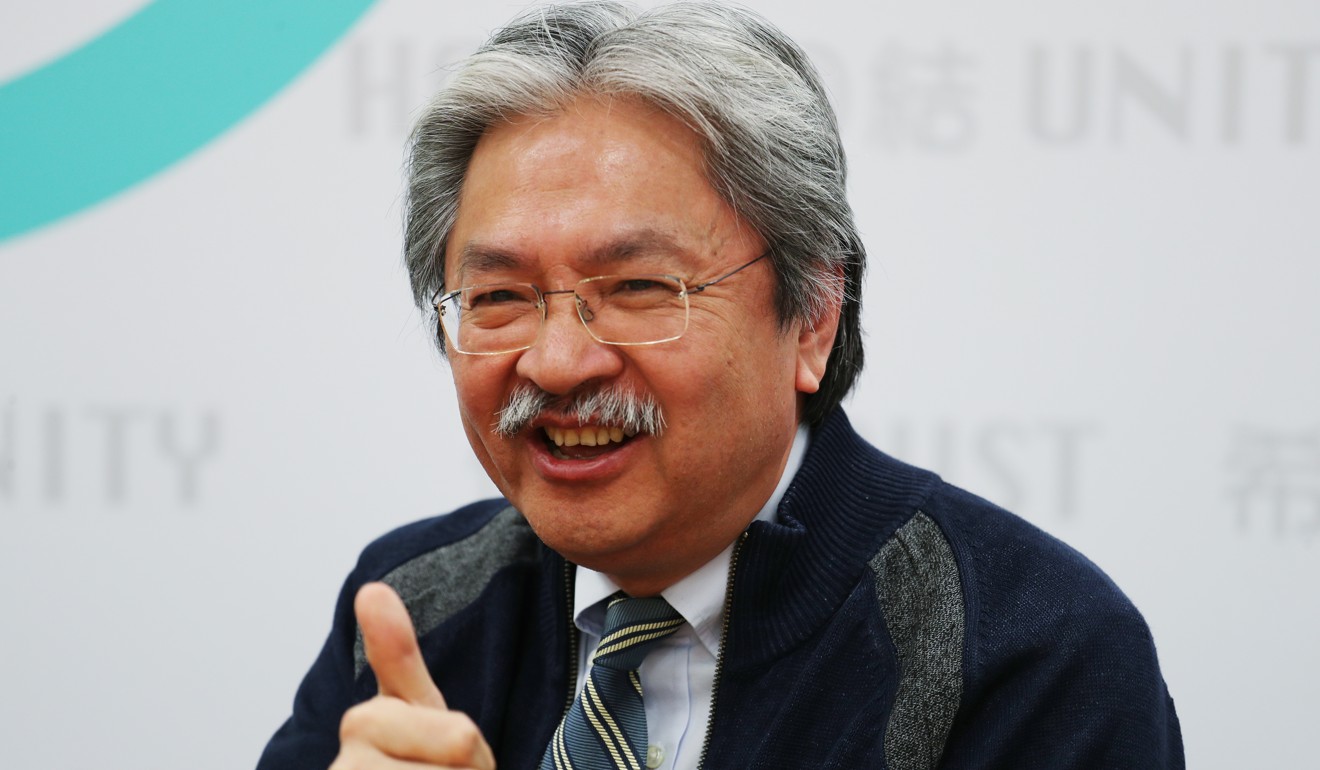
Former Hong Kong leader Leung Chun-ying did not declare new role as he was out of town
And he is not subject to a time limit anyway, his office says, as row over whether his new positions pose conflict of interest rumble on
Former Hong Kong leader Leung Chun-ying took 11 days to tell the government of his new appointment as a director at two companies because he was out of town, his office has said.
It also said that Leung only needs to “inform” the government of his new move, as the two companies are non-profit-making, and he is not subject to any “specified time limit” to do so.
Leung’s office was replying to Post inquiries on Wednesday as a row over whether his new roles pose a conflict of interest rumbled on.
Former Hong Kong leader CY Leung denies conflict of interest over ‘Belt and Road’ company directorship
The Democratic Party has said it plans to raise the issue with the advisory committee on post-office employment for former chief executives and politically appointed officials, while some observers have called for a review of the system so that those not following the guidelines could face reprimand.
Leung’s office said the claims of a conflict of interest were “based on the wrong assumption that the organisations were profitmaking”.
“As the organisations are non-profit-making, Mr Leung is required only to inform the government. There is no specified time limit. He was out of Hong Kong on two separate trips between August 31 and September 11”, the statement read.

His office did not say where Leung had been, but there were reports he was in Beijing in late August for a Standing Committee meeting of the Chinese People’s Political Consultative Conference, of which Leung is a vice-chairman.
In a notice with an official letterhead of “Belt and Road Hong Kong Centre”, sent to the press on Wednesday, Leung said he had set up the NGOs to strengthen foreign exchanges. Leung added he had been introducing some guests from a think tank in Hungary, in his capacity as CPPCC vice-chairman, to the “Belt and Road” and “Greater Bay Area” developments.
He may have access to insider information which may be used to boost the companies’ standing and future interests
Democratic Party lawmaker Lam Cheuk-ting said: “As the chief executive, he had promoted both. And he is now CPPCC vice-chairman, so he may have access to insider information which may be used to boost the companies’ standing and future interests.”
According to government guidelines, a former chief executive is subject to a control period of three years after leaving office.
“[He] should inform the government of any appointment ... remunerated or otherwise, accepted and undertaken by him during the three-year control period,” read the guidelines. If he is appointed to “charitable, academic or other non-profit-making organisations”, there is no need for him to seek the advisory committee’s advice.
Pro-establishment legislator Paul Tse Wai-chun said: “Leung has not breached any law, and he does not seem to have breached the guidelines either. But it looks very odd. And there was already the UGL saga, so this row might reinforce the public impression he has something to cover up.”

Under current guidelines, Tsang should “seek the advice of the advisory committee before taking up any employment or appointment during [the first year after stepping down from office] whether in or outside Hong Kong”.
This row might reinforce the public impression he has something to cover up
A spokesman said Tsang would not comment.
Neither the guidelines for post-office employment for former chief executives nor those for former political appointees have mentioned any form of penalty in case they are not followed.
Political scientist Dr Chung Kim-wah of Polytechnic University said: “It is now a toothless tiger. The government should review the system and seek to impose some form of penalty if the former officials do not follow the guidelines.”
The spokesman said the government was “processing the case” and also confirmed that while former chief executives are subject to a control period of three years after leaving office, they may accept appointments to charitable, academic or non-profit-making organisations in this time span. They do not have to consult the advisory committee.

